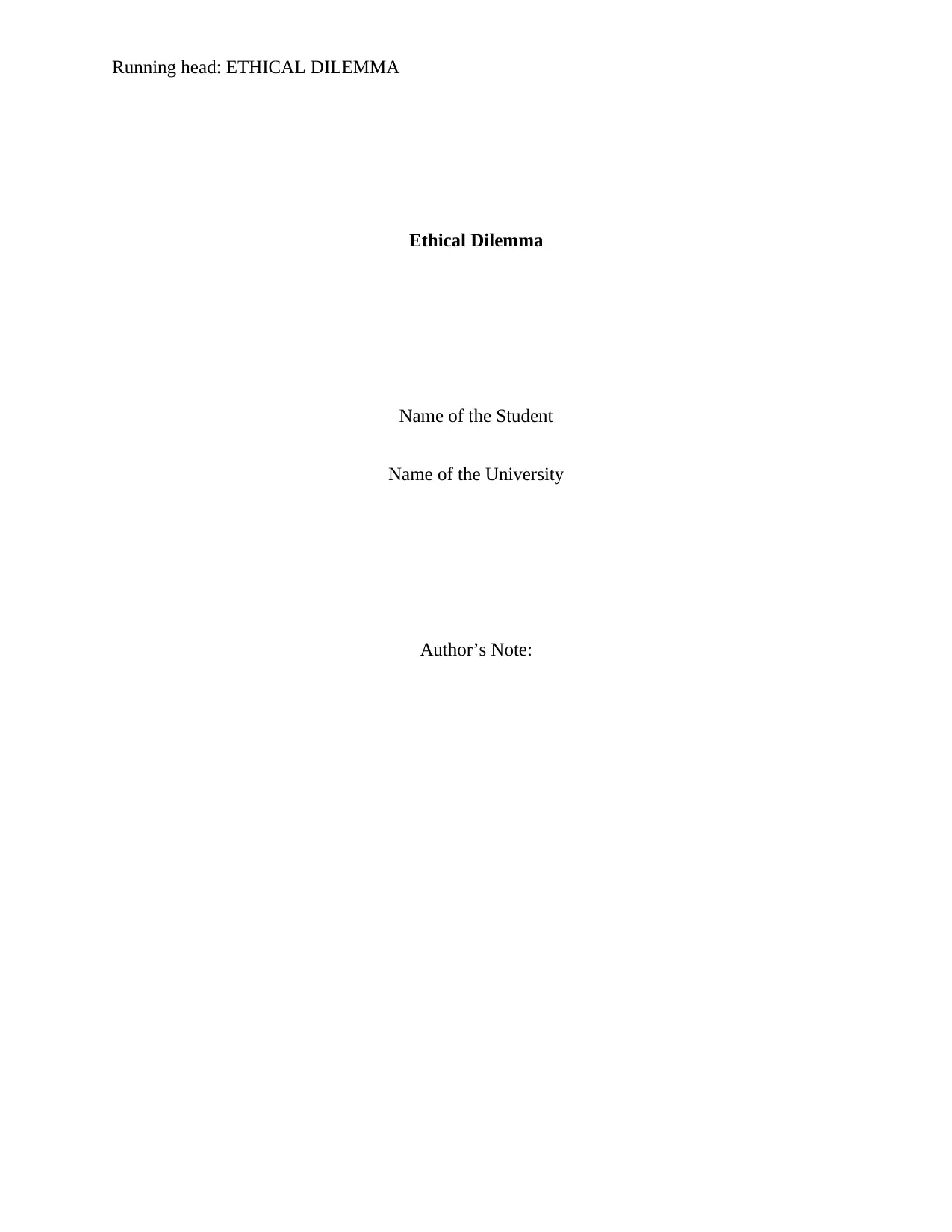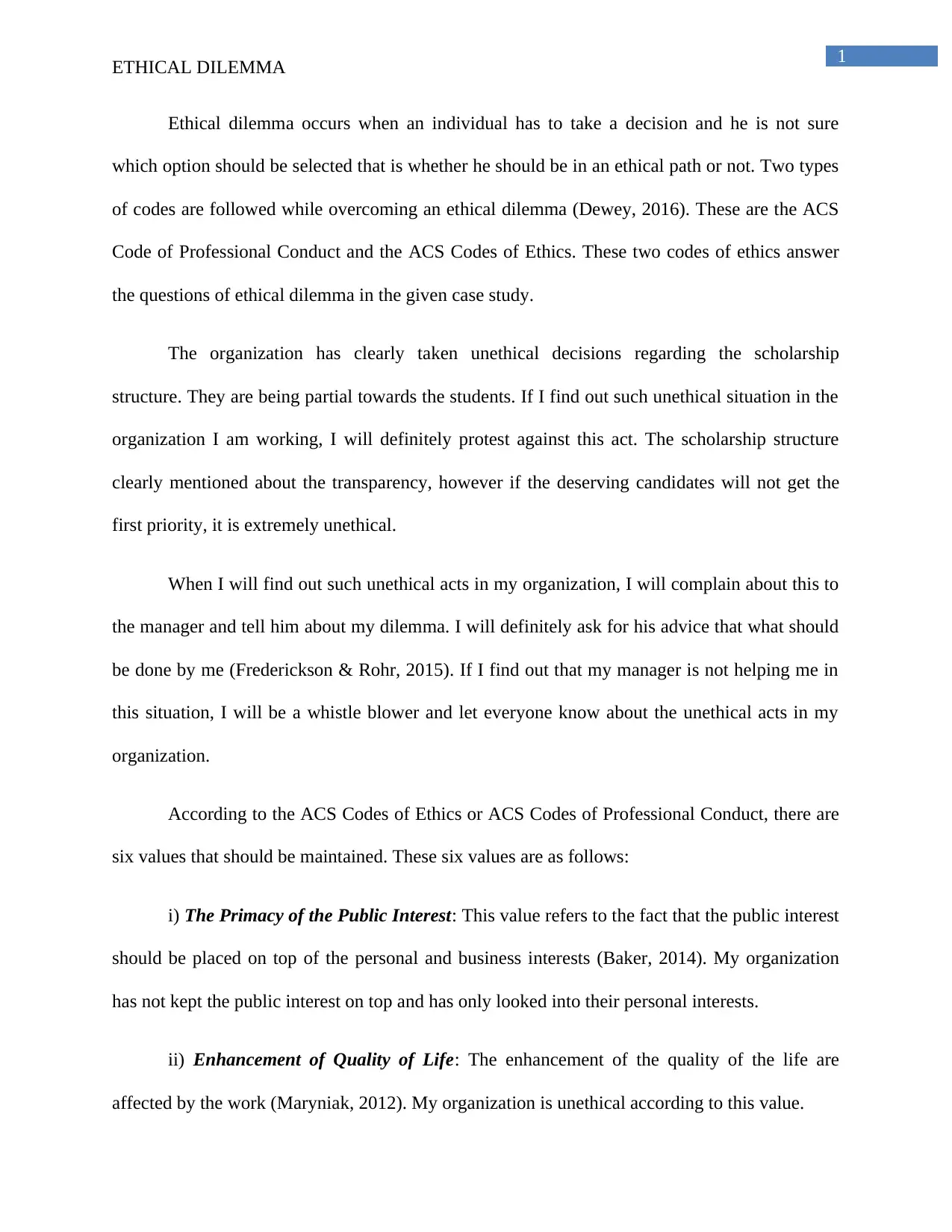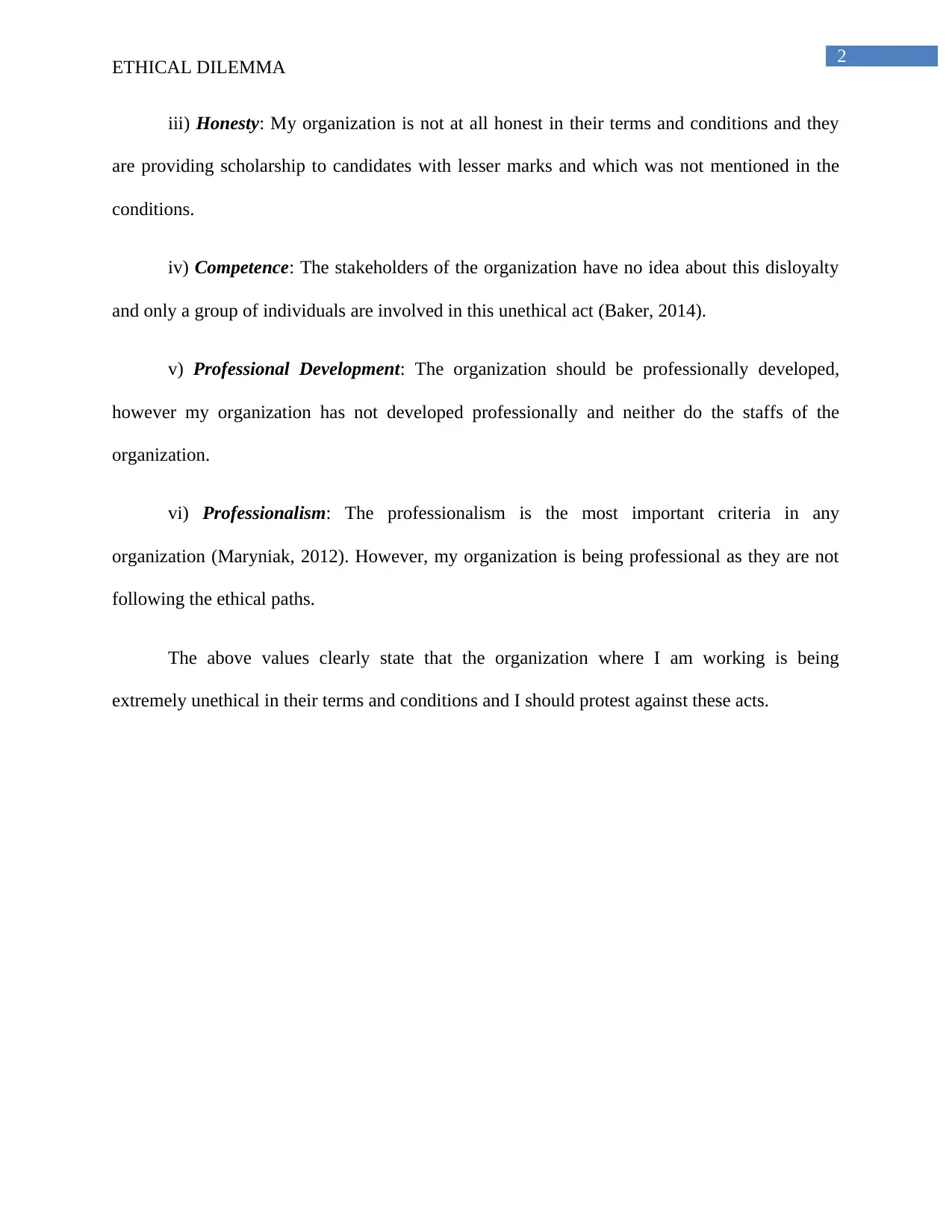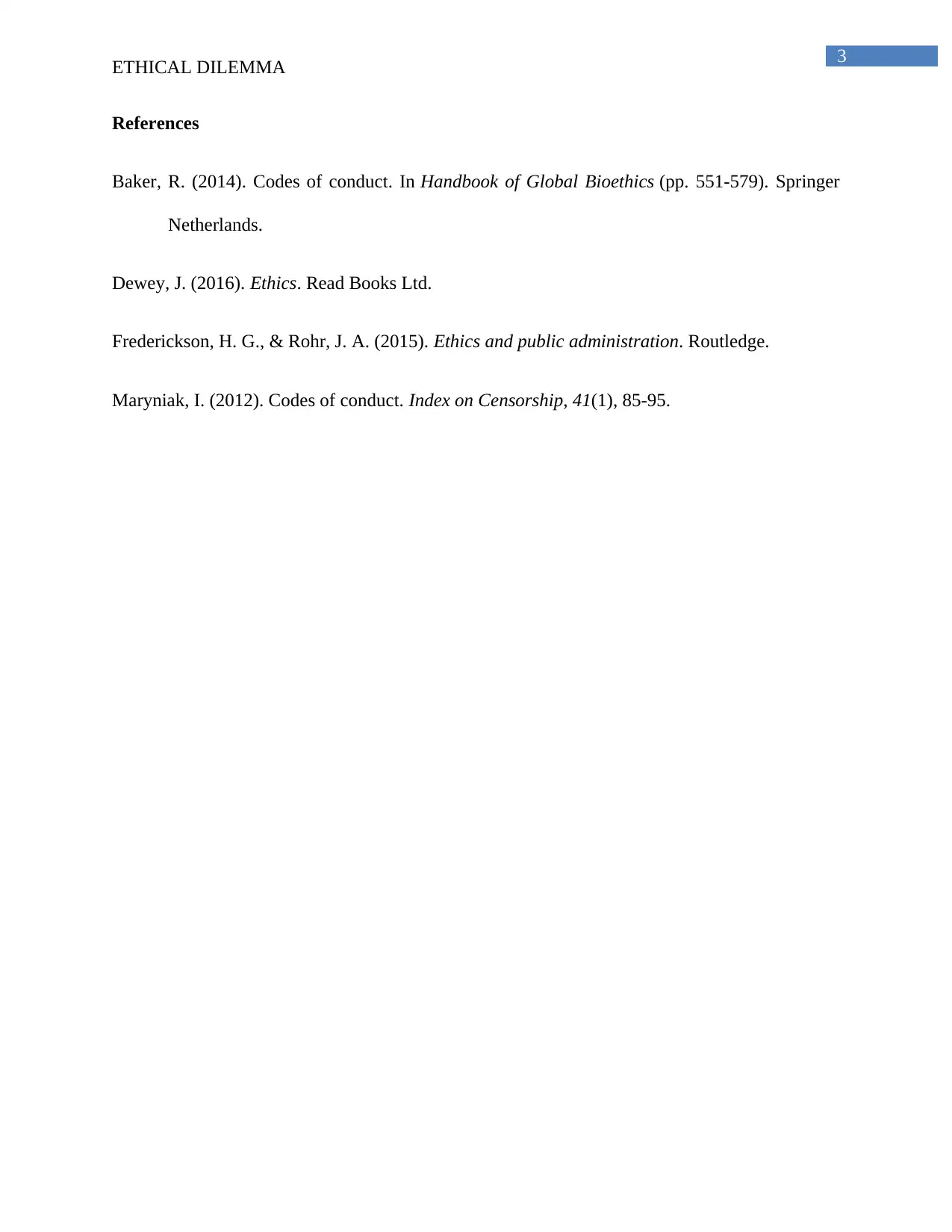Ethical Dilemma Report: Ethical Dilemma Case Study Analysis
VerifiedAdded on 2020/03/16
|4
|622
|51
Report
AI Summary
The assignment analyzes an ethical dilemma within an organization, focusing on the unethical distribution of scholarships. The report examines the application of ethical codes, specifically the ACS Code of Professional Conduct and the ACS Codes of Ethics, to the situation. The student identifies the violation of several ethical values, including public interest, honesty, and professionalism. The report outlines a course of action, including escalating the issue to management and, if necessary, becoming a whistleblower. The assignment references relevant literature on ethics and public administration, providing a framework for understanding and addressing the ethical challenges presented in the case study. The report highlights the importance of ethical conduct and offers insights into how to address unethical practices in a professional setting.
1 out of 4










![[object Object]](/_next/static/media/star-bottom.7253800d.svg)